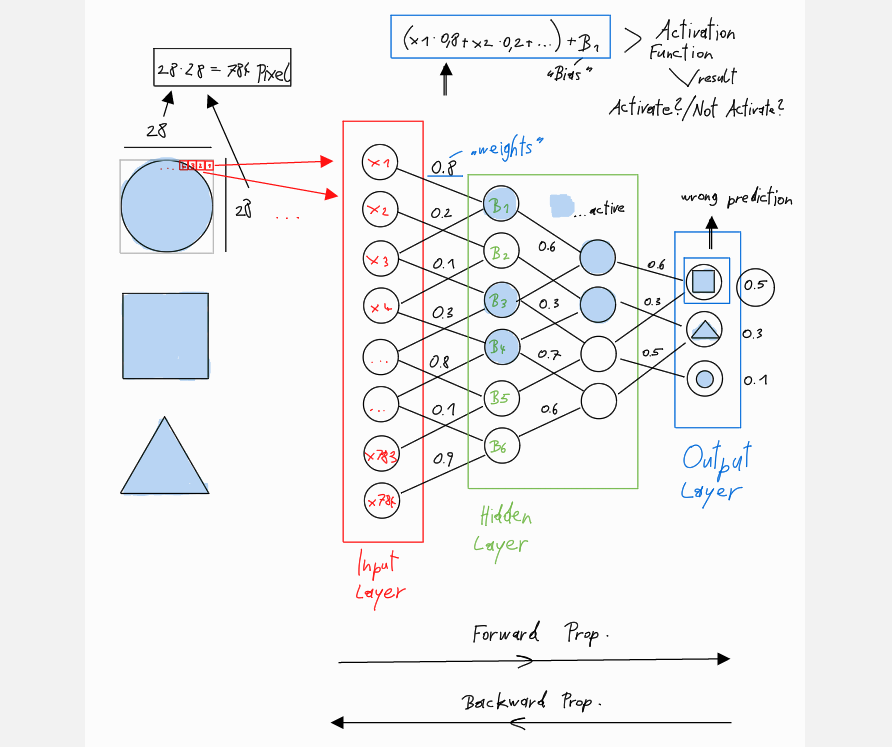# Perceptron / Neural Network
They form the base of Deep-Learning (subfield of ML)
Algorithms are inspired by human brain. Neural Networks take data - train themselfes - predict the output.
- Recognizing patterns, solving common problems NN rely on their traning data.
NN layers:
- input layer - takes input data
- hidden layer - perform computation
- output layer - predicts final output
Each neuron (node):
- represents an individual linear regression model
- is connected to neurons of next layer (through channels - each channel has numerical value - “weight”)
- has an input-data, weight, bias, output
# Weight, Bias
Weights are values that represent the strength of connections between neurons in layers of NN. You can say, that the weight represents the intelligence of a neural network.
Biases are constants added to influence the activation function of each neuron.
# Feed Forward
Forward Propagation = Feed Forward
Passing input data through the network in forward direction
- input layer - hidden layer - output layer
- without any adjustments being made
# Backward Propagation
Backpropagation = Backward Propagation
Takes output data and goes steps back. It helps learning from its mistakes by adjusting parameters (weights, biases), based on errors when making predictions
- repeated & repeated until network gets better at tasks
# Use-Cases
- Face recognition
- Forecasting
- Music composition
# Example: Predict Shape
Let’s take an example. The neural network should differentiate between a square, circle, triangle.
At first, we differentiate the image in 28x28 pixels. Each pixel gets their own neuron. Then we multiply the neuron-value with their weight & sum their values up.
- After, we add their BIAS
Now we activate the values (using activation function). An activated neuron transmits data to the next layer over channels (= “Forward Propagation”).
In the end, we multiply & sum & … till we get the output.
In this example, we have a wrong prediction. So we gonna use Backward Propagation.
